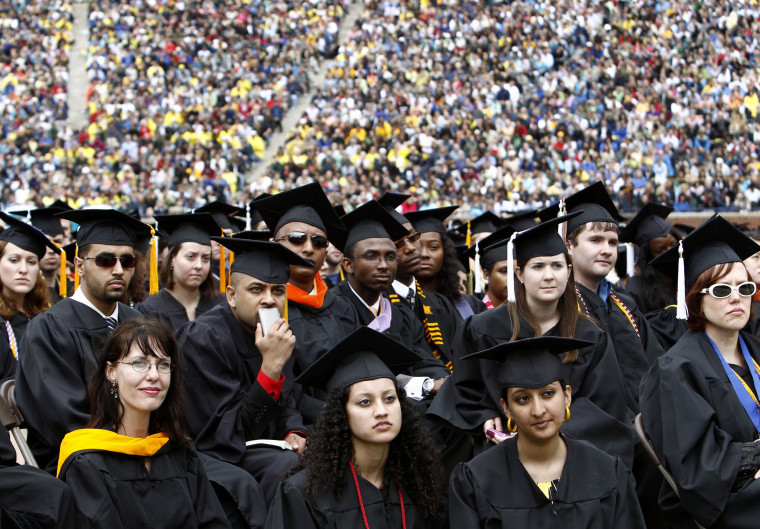The interest rates on federally subsidized Stafford Loans will double from 3.4% to 6.8% if Congress fails to act by July 1. If the interest rate hike goes into effect, students who've taken out loans before the deadline will have an estimated $4,000 additional dollars to pay back under the standard 10-year repayment plan. The loans are awarded based on need to an estimated 7 million students per year. Average student loan debt is reported to be around $25,000 per graduating senior.
This is the exact same quandary Congress faced a year ago. In 2007 under a Democratic majority, Congress passed the College Cost Reduction and Access Act, lowering the interest rate on subsidized Stafford Loans to 3.4%. The legislation was due to expire in July 2012, but Congress passed a one-year extension at the last minute.
However, another temporary extension is not something that either party wants, as student loan debt now exceeds $1 trillion, according to Finaid.org.
"This 11th-hour scrambling is a perfect demonstration of why we need to take the politics out of student loans once and for all," Republican Congressman John Kline said on CBS last week. "There are finally signs of progress toward a bipartisan plan for a long-term, market-based solution, but we need to finish the job—and do so soon."
Many economists believe that the massive debt riddling those about to enter the nation's workforce could lead to serious economic repercussions. A recent study by the Pew Research Center has found that 48% of graduates say their student loans have made it harder for them to pay their bills.
“Higher education is the surest path to middle-class success and economic opportunity. The last thing we should be doing right now is making it harder for our students to get an affordable education,” Democratic Senator Jeff Merkley said at Portland State University on Monday. “Our students should get the same low rates that big Wall Street banks get.”
Even though both parties would like to prevent these interest rate hikes from taking effect, whether or not they can pass student loan reform by the July 1 deadline is another question.
